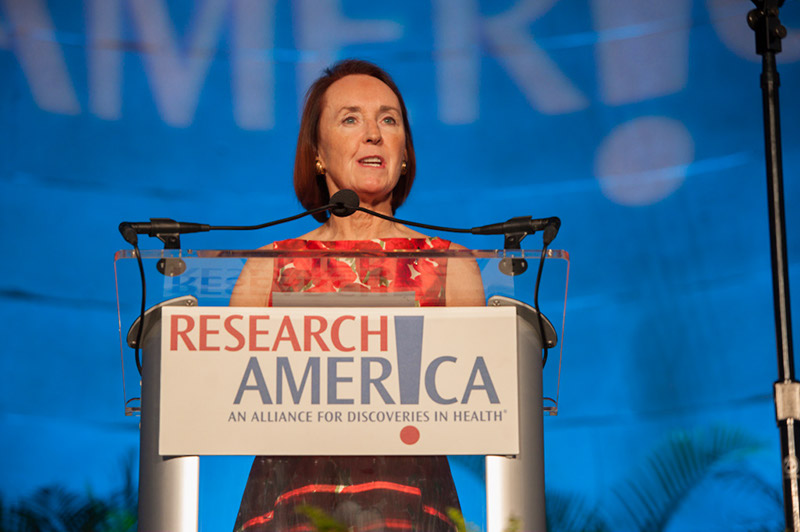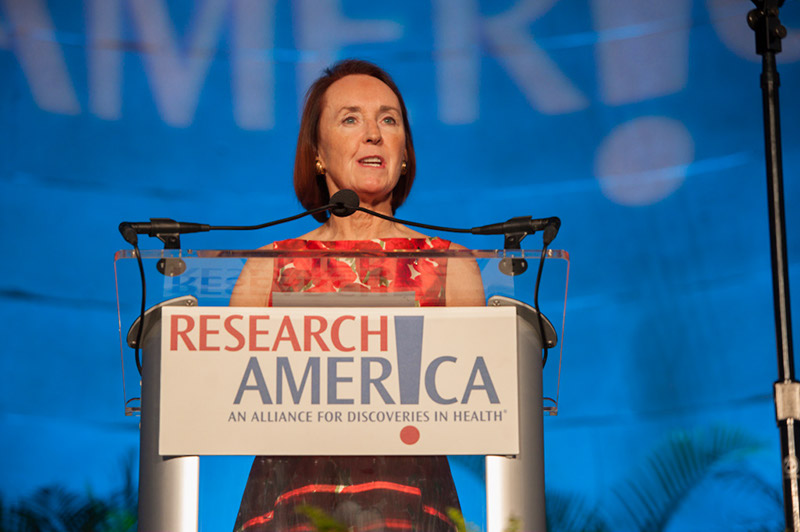Charting a Better Course

 Dear Research Advocate:
Dear Research Advocate:
The government is now in its sixth day of a partial shutdown that has left agencies including the Food and Drug Administration (FDA) and National Science Foundation (NSF) without the necessary resources to conduct their critical, multi-faceted work. Negotiations between the Congress and the White House reportedly remain at a stalemate.
Last year, when the House and Senate voted to end a weeklong shutdown, Senate Majority Leader McConnell said he hoped everyone could remember that “brinksmanship and hostage-taking do not work. They make bipartisan progress harder – not easier – to achieve.” Let’s face it: no one is heeding that lesson now. The path that will truly advance our nation’s interests is not simply to end the standoff, but to forge a compromise that wraps up the FY19 appropriations process so that FY20 budgeting can begin in earnest. The President and Congress must right the ship, sooner rather than later.
Right the ship, then chart its course forward. Federal leaders must deal with a host of unresolved issues in addition to the partial shutdown, including repealing the medical device excise tax, which disincentivizes research into devices and diagnostics that work to stop disease and mitigate its effects, and, for the Senate, voting on the confirmation of Dr. Kelvin Droegemeier – who will need to be renominated when the new Congress is seated – as the next director of the White House Office of Science and Technology Policy (OSTP).
Congress also must determine the fate of the sequestration caps, which are back in effect again for FY20. If no action is taken, these caps will eliminate an estimated $55 billion from non-defense discretionary funding and an estimated $90 billion from the Defense budget. These draconian cuts in “top-line” funding would set the stage for erosion instead of growth in research investment, to the detriment of health, economic growth, fiscal stability and national security.
If we want a bipartisan budget deal to lift the caps, the time to start making the case for it is now. Effective advocacy isn’t intimidated by long odds; it works to change them. If that’s rule 1, then rule 2 is this: silence empowers inaction. Research!America won’t wait long after the 116th Congress is sworn in on January 3, 2019 to launch a campaign pounding away at the need for a sequestration deal. Let’s do it together! More on this in upcoming letters…
There is no shortage of challenges that will require the full force of the advocacy community in 2019. The World Dementia Council held an inspiring summit in London earlier this month to discuss action to prevent, delay and ultimately treat dementia. In the U.S. alone, more than 5 million people are living with Alzheimer’s or a related dementia. The Council released Defeating Dementia: the road to 2025 highlighting the role research plays in combating this debilitating and deadly disease. In the context of our common advocacy objectives, the need, the challenge and the hope captured in the report can help each of us engage policy makers and the public in the under-appreciated impact of research.
In shocking public health news, last week the National Institute for Drug Abuse released data showing the percentage of high school students using e-cigarettes has nearly doubled, from 11% to 20% in just one year. (Here is an eye-opening personal story from the Wall Street Journal.) U.S. Surgeon General Jerome Adams issued a rare Surgeon General’s Advisory declaring e-cigarette use among youth an epidemic and urging new youth-focused restrictions. Many in the practitioner and science community are bemoaning the lack of research – and thus lack of evidence – as to what works and what doesn’t when it comes to standing down this epidemic. We can’t afford, as a nation, to under-resource public health research. This too must be a rallying cry for advocates in the new year.
As we reflect on 2018 and prepare to welcome a new year, allow me to borrow from a friend and extraordinary research advocate, Pat Furlong, Founding President and CEO of Parent Project Muscular Dystrophy, and wish you all a new year filled with possibilities, opportunities, and hope.
Sincerely,
Mary Woolley




